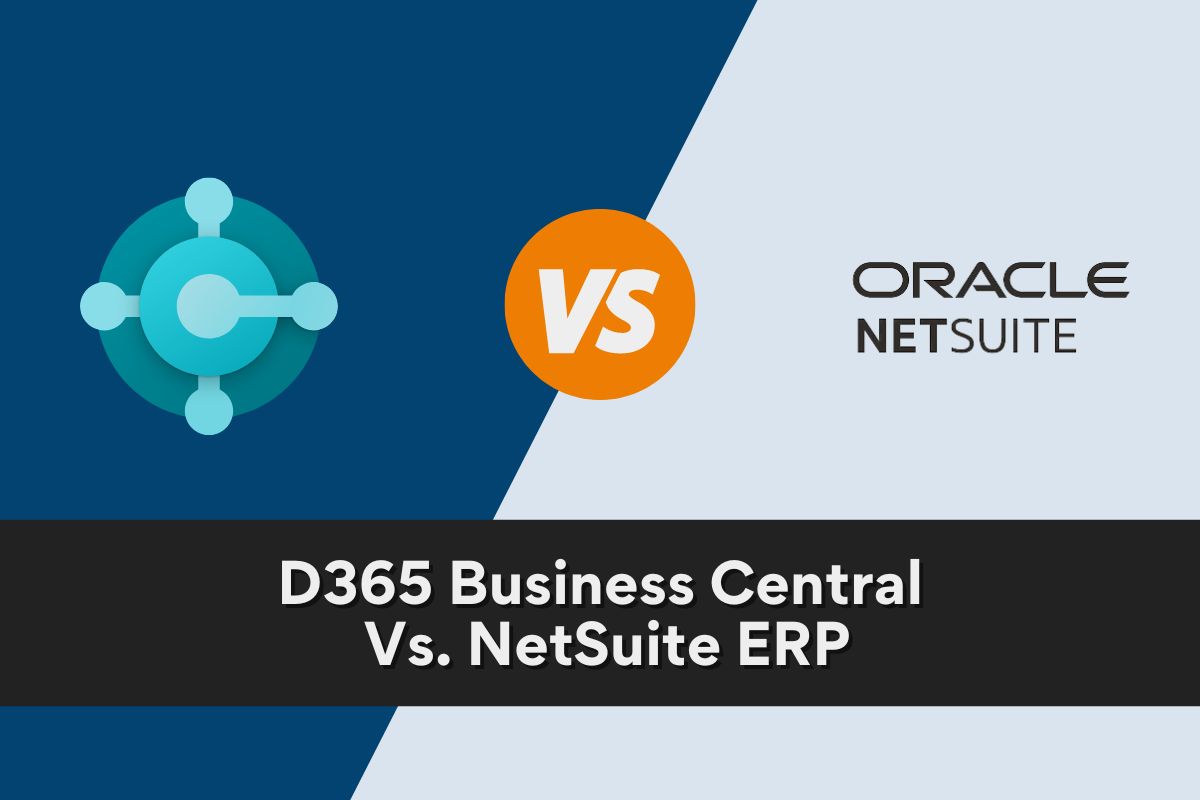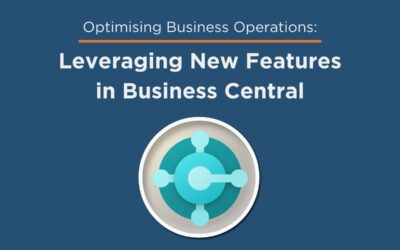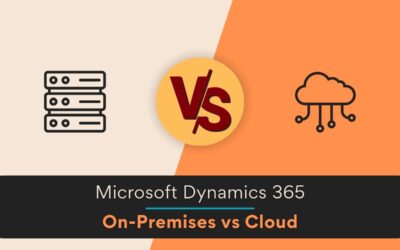Enterprise resource planning (ERP) systems help businesses manage all the key aspects of their operations in one place. They connect finance, inventory, supply chain, manufacturing, sales, marketing, and more onto a centralised platform.
The ultimate purpose of ERPs is to streamline workflows, automate tasks, improve data accuracy, and increase productivity. In other words, ERP software helps businesses achieve their goals faster and easier.
However, not all ERPs are created equal. Two of the most popular options today are Dynamics 365 Business Central and NetSuite. Both are cloud- and subscription-based solutions for small and mid-sized businesses. But which one is the best?
To answer this question, we will analyse the most important features of both platforms. Here is our comprehensive Dynamics 365 Business Central vs. NetSuite ERP software comparison.
Make an Informed Decision with a Indicative Proposal
Unlock the power of Dynamics 365; Simplify operations and Accelerate growth. Request a tailored quote for Microsoft Dynamics 365 BC now!
Dynamics 365 Business Central and NetSuite ERP Overview
Launched in 1998, NetSuite by Oracle is one of the longest-running ERP solutions out there. It offers a suite of applications covering various business functions, such as financials, CRM, e-commerce, inventory, project management, and more. NetSuite claims to have over 26,000 customers in more than 200 countries.
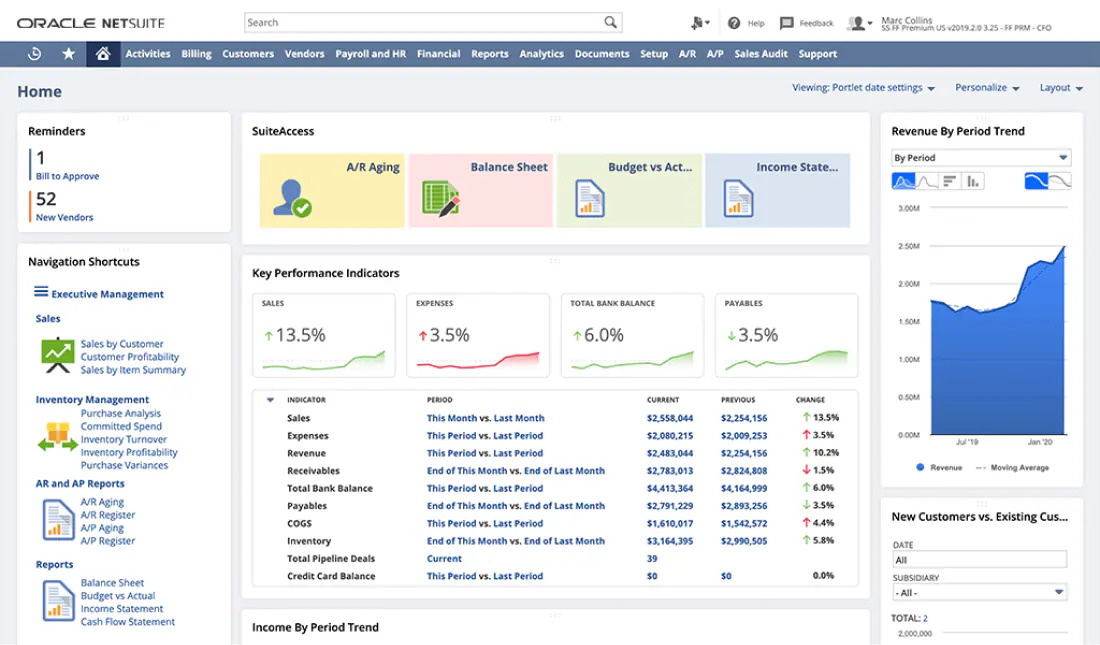
Microsoft Dynamics 365 Business Central is part of the Dynamics 365 family of applications, which also includes CRM, marketing, sales, service, and more. Although Microsoft introduced it in 2018, Business Central is based on Dynamics NAV, which has been known since the late 1980s.
It is hard to tell for sure how many users Dynamics 365 Business Central has. Microsoft reports that all Dynamics 365 solutions serve more than 230,000 customers worldwide. One thing is certain though – this number continues to grow steadily.
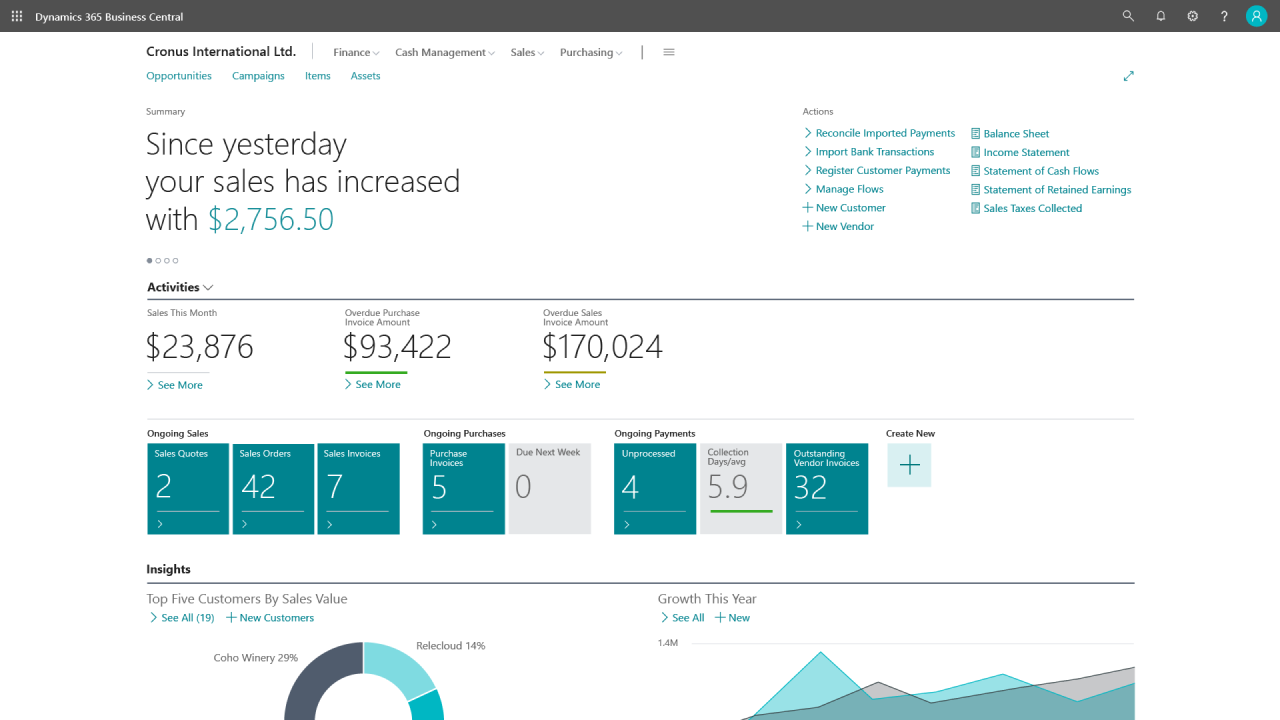
Are you feeling stuck?
Get in touch with one of our specialist and make use of its expertise for an hour with our free consultation call.
We are available for any Microsoft Dynamics 365 users, whether you are one of our clients or not.
Business Central vs. NetSuite Features
Now, let’s take a closer look at the features both apps have to offer.
Architecture
Although both platforms deliver solutions to improve business operations, they do it in their own distinctive ways. One of the key differences lies in software architecture.
Dynamics 365 Business Central uses a single-tenant approach. This means that ERP functionality resides in one database yet every user receives a unique environment to work with. At the same time, separate modules have their own databases. They integrate with each other and the core ERP through a middleware layer.
The advantages of this approach are higher customisation, better security, as well as more control over the software. The trade-off, however, is a certain degree of data silos.
NetSuite, in contrast, relies on multi-tenant architecture. All its users share the same software and database. This results in tight integration between modules like ERP, CRM, e-commerce, payroll, and more. Besides, users can benefit from a consistent user experience across all modules, and updates occur faster.
On the flip side, customisation options are more limited with a multi-tenant approach. On top of that, a single database makes the software vulnerable to potential data breaches.
Design Philosophy
The design philosophy behind each product is also dissimilar.
The idea behind NetSuite is that businesses will use it the way it is. There are bundled solutions for many different industries, which are supposed to suit the majority of users.
Apart from that, NetSuite offers in-house customisation options. It is also possible to integrate with some third-party applications, but they are not as seamless and native as the ones within the Oracle ecosystem.
Instead of standardisation, Dynamics 365 Business Central prioritises customisation. This means that you can tailor the software to your specific processes and goals. Thanks to the single-tenant architecture, you are able to install add-ons, extensions, APIs, and other solutions from the Microsoft ecosystem (such as Office 365, Power BI, Asure, etc.). What’s even better, Microsoft Dynamics 365 Business Central integrates with many third-party applications.
Are you wishing to fine-tune Microsoft Dynamics 365 Business Central to your needs? Then don’t hesitate to call us. Mercurius is a certified Dynamics 365 partner boasting vast experience in ERP implementation and consulting. Whether you need data migration, integration, or ongoing optimisation, we are happy to assist. Call us at +44 1908 508080 and take advantage of the flexible cloud-based ERP solutions.
Reporting
NetSuite has a robust built-in reporting tool. You can create reports covering a wide range of metrics and dimensions (financials, sales, inventory, projects, just to name a few).
Thanks to the drag-and-drop report builder, you have an opportunity to customise reports and dashboards to your liking. SuiteAnalytics allows for uncovering business insights even if you lack technical expertise.
Dynamics 365 Business Central’s native reporting tools are more modest. This shouldn’t be a problem though since you can easily integrate the software with Power BI.
User-friendly and intuitive, this cloud-based business intelligence tool comes with a rich set of features and functions. Data modelling, visualisation, analysis, sharing – all of this is available with Power BI. That being said, the software requires installation and a separate license, which comes at an extra cost.
Integration Capabilities
Since NetSuite markets itself as an all-in-one cloud solution, it comes with a wealth of useful tools. On top of that, there are many native applications you may install. Since they all access the same database, the implementation process is normally quite straightforward.
On the other hand, you may require more than that. Although it is possible to benefit from third-party integrations, adjoining them can sometimes be challenging.
In contrast, Dynamics 365 Business Central was built with integration capabilities in mind. To help extensions interoperate smoothly, Microsoft introduced Common Data Service, a middleware layer.
Currently, there are over 750 add-ons available on Microsoft’s AppSource marketplace. With such a generous selection, you can customise 365 Business Central as wide and deep as you wish.
Updates
NetSuite receives automatic updates twice a year, usually in April and October. They occur in two phases. First, Oracle rolls out updates to a small number of customers. If everything goes smoothly, updates become available to the remaining client base.
This approach helps ensure high-quality upgrades but gives clients little control over timing. Besides, updates are mandatory – you can’t delay or skip them.
By contrast, Dynamics 365 Business Central is more flexible in governing update timing. While Microsoft provides designated biannual update windows, you may choose the actual date on your own. This way, you have a chance to postpone updates to avoid disruptions during critical financial periods.
Cost Comparision
NetSuite uses a flat per-user-per-month rate including bundled functionality. There are various pricing tiers for companies of different sizes. The exact price is unknown but you can expect to pay at least $100 per user. Unused functionality still incurs charges with bundled pricing.
When it comes to, Dynamics 365 Business Central, the Essential mode starts at $70 per user monthly. You also pay additional fees based on which extra modules you require. As a result, you only pay for capabilities that deliver value to your company.
Ready to unlock Copilot’s potential?
Boost engagement, simplify tasks, and create personalized content with our AI assistant. Contact our team today.
D365 BC vs. NetSuite Wrap-Up
Dynamics 365 Business Central and Oracle NetSuite take diverse approaches across architecture, design philosophy, integration, etc. Which software is the winner of the D365 BC vs. NetSuite comparison depends solely on your preferences.
NetSuite is prized for its preconfigured industry-specific solutions and tight interoperability between modules. Dynamics 365 Business Central, however, shines in the customisation and integration departments. You can tailor its functionality around your organisational processes thanks to innate flexibility.
We are happy to help you with that. As authorised Dynamics implementation specialists, Mercurius IT can shape Microsoft’s Dynamics 365 Business Central solution to align with your specific environment. Whether you want to integrate it with other Microsoft solutions or third-party add-ons, we’ve got you covered.
Call us today at +44 1908 508080, and we’ll help bring the power of digital transformation to your company.
Make an Informed Decision with a Indicative Proposal
Unlock the power of Dynamics 365 BC; Simplify operations and Accelerate growth. Request a tailored quote for Microsoft Dynamics 365 Business Central now!

